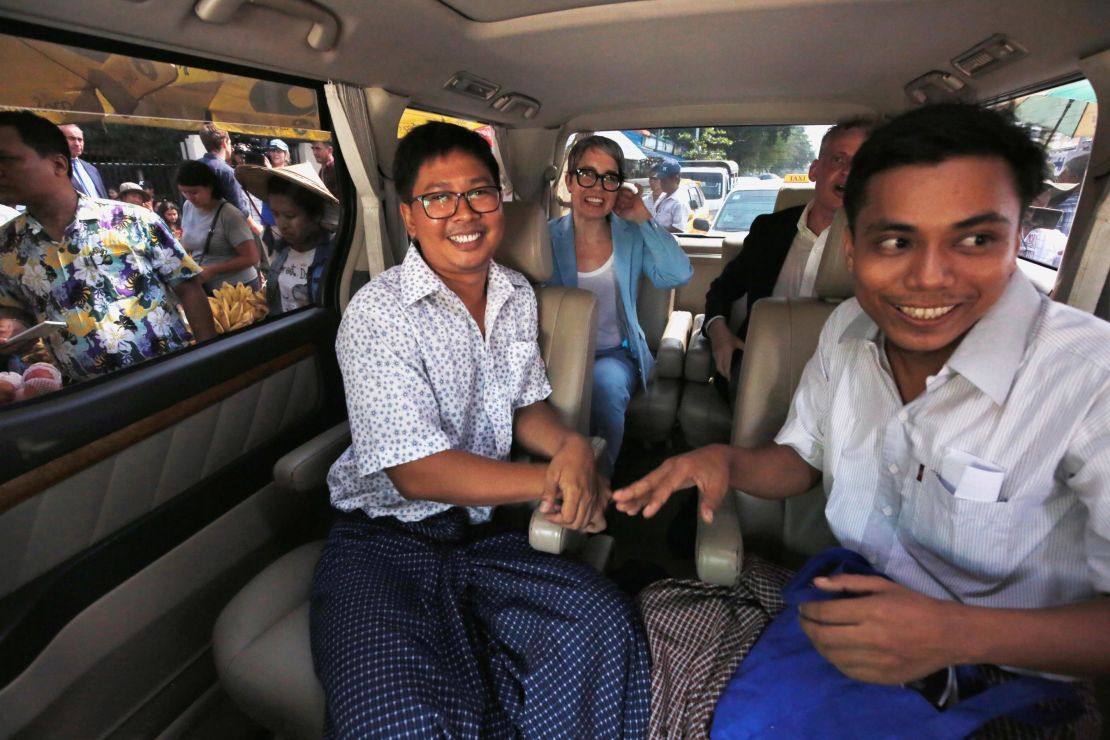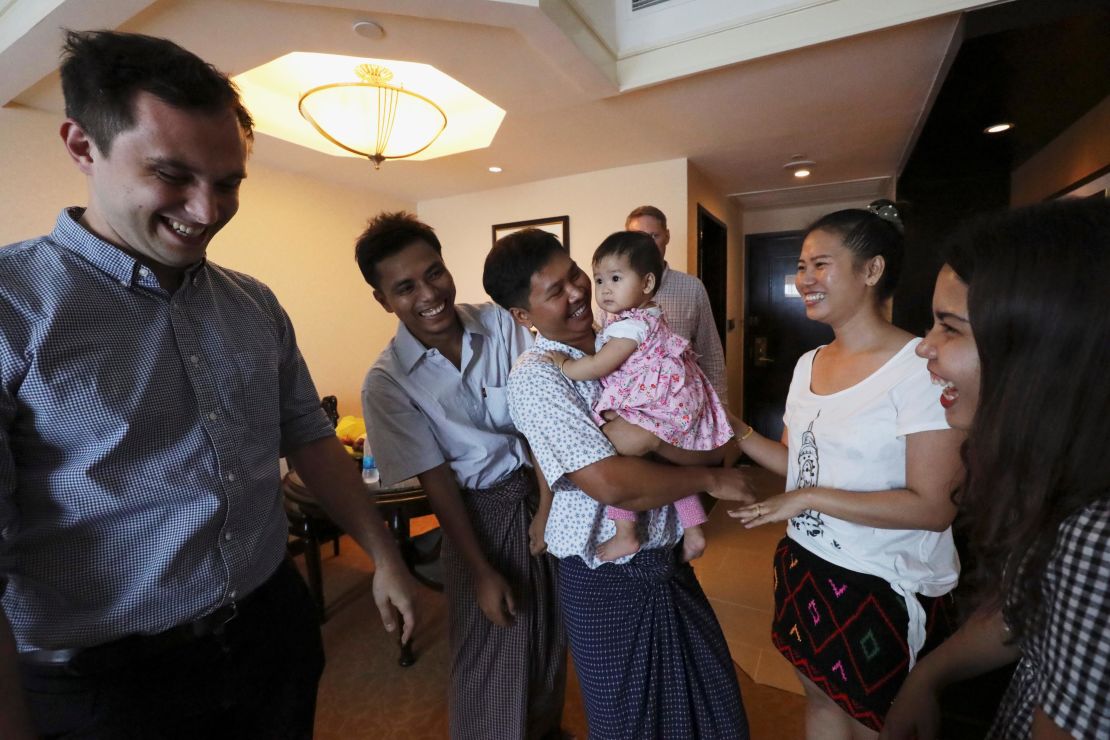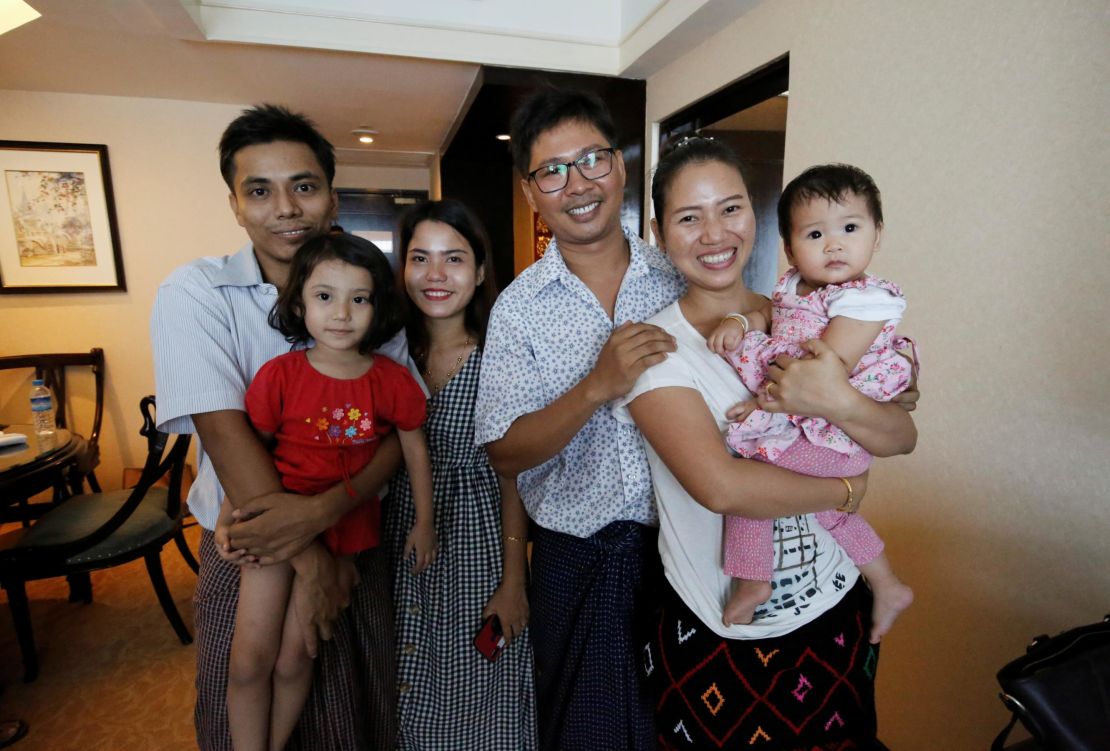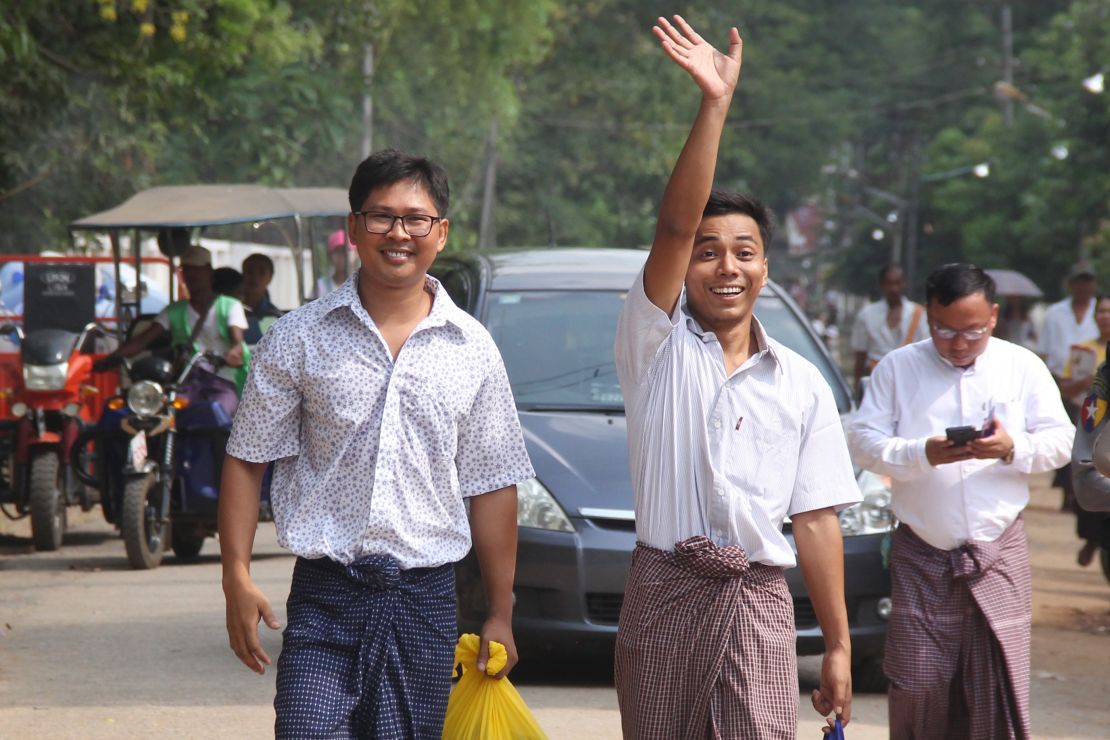Two Reuters journalists jailed in Myanmar under the country’s Official Secrets Act for reporting on a massacre of Rohingya civilians have been freed after more than 500 days.
Wa Lone and Kyaw Soe Oo walked free Tuesday from Yangon’s Insein jail, amid a gaggle of reporters, just weeks after their final appeal was quashed.
The pair, who received this year’s Pulitzer Prize for International Reporting, have been locked up since December 2017, when they were charged under the country’s colonial-era Official Secrets Act for allegedly disseminating secret information sensitive to national security.
The two men were released as part of an amnesty of 6,520 prisoners by the country’s President Win Myint.
As he left the prison, Wa Lone thanked supporters for calling for his and his colleague’s release.
“Inside in the prison and also around the world people were wishing to release us so I’d like to say thank you very much for everything,” he said, adding he was “really happy – excited – to see my family and colleagues. And I can’t wait to go to my newsroom.”

Reuters Editor-in-Chief Stephen Adler described the two men as “courageous reporters” and “symbols of the importance of press freedom around the world,” adding that both he and the organization “welcomed their return.”
In a statement, the journalists’ lawyer Amal Clooney said that “since taking on this case over a year ago, I have witnessed incredible determination by Reuters, in particular editor-in-chief Steve Adler and Chief Counsel Gail Gove, in their pursuit of justice for their brave reporters Wa Lone and Kyaw Soe Oo.”
“It is inspiring to see a news organization so committed to the protection of innocent men and the profession of journalism,” she added. “It has been an honor to represent Reuters and the two journalists in this case and I hope that their release signals a renewed commitment to press freedom in Myanmar.”

The trial and subsequent incarceration of Wa Lone and Kyaw Soe Oo became a cause celebre around the world, with numerous figures calling for their release. Wa Lone’s characteristic double thumbs up, which he accompanied at court appearances with a unflagging cheerfulness, was adopted by many journalists who posed for photos raising awareness of the case and demanding their colleagues’ freedom.
Both men have families with young children. Kyaw Soe Oo has a three-year-old daughter, while Wa Lone’s daughter was born after his arrest. On Tuesday, the two men were finally reunited with their wives and families in Yangon. In emotional scenes, Wa Lone was pictured holding his young daughter for the first time outside of police custody.
Litmus test for free speech
In September 2018, a court convicted the two Myanmar nationals and sentenced them to seven years in prison. Earlier this year, the High Court in Yangon threw out their appeals, and in late April the country’s Supreme Court rejected their last attempt to get their convictions overturned.
After that final defeat, the journalists’ lawyer said they had to hope for a presidential pardon, which they finally received this week after years of international pressure.
Wa Lone and Kyaw Soe Oo, their lawyers, and Reuters have all maintained that the pair never committed any crime. “They were victims of a police set-up to silence their truthful reporting,” the news agency said in April.

The men led an explosive Reuters investigation – which eventually won a Pulitzer Prize – into the killing of 10 Rohingya men in the village of Inn Dinn, part of a military-led campaign against the Muslim minority which began in August 2017 after Rohingya militants attacked police posts.
More than 720,000 Rohingya are estimated to have been forced to flee into Bangladesh as a result of the ensuing violence.
As the military in the mainly Buddhist nation tore through Rakhine state, allegedly killing with impunity, raping women and burning babies alive, authorities turned on the reporters trying to investigate the atrocities.
Wa Lone and Kyaw Soe Oo say they were set up by a police officer posing as a source. They say that in late 2017, officers invited them to a secret meeting at a restaurant on the outskirts of Yangon and handed them documents.

Police swooped and arrested them with the classified information in their possession.
The Myanmar government denies human rights abuses by the military in 2017, saying it was targeting Rohingya militants.
The case was seen as a litmus test for press freedom and democratic rights in the Southeast Asian country. The jailing of the two journalists cast a pall over Myanmar’s media community and sparked increased international criticism of the nation’s de facto leader and Nobel laureate Aung San Suu Kyi.
In a statement Tuesday, Cedric Alviani, head of the Reporters Without Borders East Asia bureau, said that while the organization was relieved by the pair’s liberation, the world should not forget that they had spent more than a year in jail. “This is unacceptable as they only did their job as journalists.”
CNN’s Rebecca Wright, Helen Regan and Julia Hollingsworth contributed reporting.


















